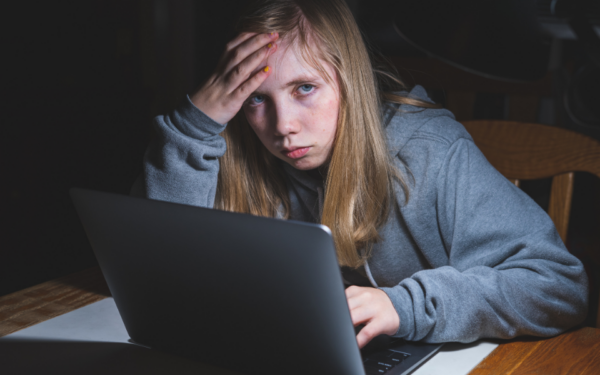
Stress doesn’t take a holiday
An interview with Scott Hanauer, Clinical director
It is important for caregivers to understand signs of stress in their children and some ways in which they can help lessen it. This is especially true now, in the time of COVID-19, when many of our normal patterns and social supports have been upended.
“Even before COVID-19, we were very concerned about stress in kids,” said Scott Hanauer, clinical director for Family Education & Support Services. “It was really high. We’re pretty sure it is even higher now.”
With kids at home and parents becoming teachers while still trying to work, often from home, “the tension between parents and kids is going up,” he said.
Data shows 50 percent of kids are failing at least one class in school. More troubling: “Some districts have totally lost their kids. I attribute that to Covid.”
Overwhelmed by their life situations, they have just checked out of attending school and districts are trying to find them.
Adding to parental anxiety is the fact each child is different. An introverted child might thrive in a home-learning situation. A more outgoing, socially active sibling might not be able to cope in the same situation.
“And then there is the stress related to technology, different platforms and trying to learn how to make them work,” Scott said.
In a Healthy Youth Survey conducted in 2018, 50-60 percent of youth said they had stress that wouldn’t go away. They didn’t feel they had an adult in their life they could talk to about their feelings. They didn’t want to bother their stress-affected parents and weren’t sure they could help in any event.
So, what are the signs of a stressed-out child? Scott said to watch for:
- Sleep problems – sleeping too much or inability to go to sleep or stay asleep.
- Short fuses (they are prone to blowing up).
- Oppositional behavior, especially power struggles with parents that occur more frequently and intensely and last for a longer time.
- A lower tolerance for frustration.
- An expressed sense that “I’m worthless. I can’t do anything right,” or “I can’t trust anybody.”
How can parents help lower a child’s stress?
Scott said what scientists have identified as “adverse childhood experiences” – divorce, domestic violence, substance abuse among others – lead to increased negative life outcomes.
Replacing them with positive experiences can help them build a foundation to succeed.
A good place for parents to begin relieving stress is to talk to their child in empathetic ways – listen closely, place yourself in their shoes, focus on their problems as they see them and remain present so you can build a stronger connection. While you may find it difficult when you may feel overwhelmed yourself, it is important to acknowledge your child’s feelings and views to keep the communication doors open between you.
A second important step is to keep your child connected with the community or cultural traditions that give their lives structure and meaning.
Here are some other tools:
- Speak to your child about future-related activities and ask them future-related questions, such as “when COVID is over, what do you want to do most?”
- Try to connect your child to one empathetic non-parental adult. Doing so can give them someone to talk with outside the family and be the key to keeping their hope alive.
- Create a “bubble.” Even with COVID-19, letting a child stay connected with a small number of friends is helpful in lifting the feelings of isolation they may be experiencing.
- Identify your child’s passion. Scott said “Every child has a spark,” be it music or sports or whatever. Find it and nurture it.
“You can build resiliency, even during this time. And hope and resiliency are closely related,” he said.
Scott and other FESS staff members teach parenting classes that can help you through this difficult time.
Check them out at familyess.org/classes.
